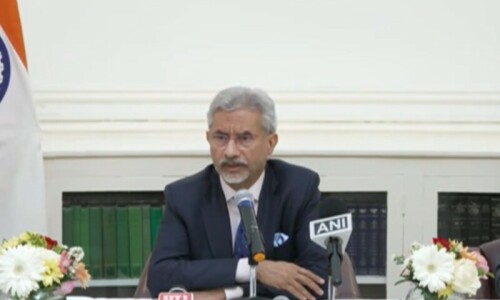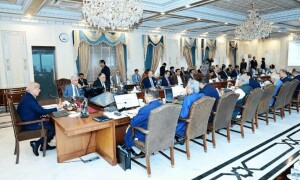THE government has formulated a strategy comprising a raft of measures to dissolve what has come to be known as the inter-corporate circular debt in the power sector. The strategy is primarily based on raising Rs130bn by floating term finance certificates before the current financial year ends and making a series of adjustments in the government’s receivables from the public-sector oil and gas companies. By implementing these measures, it hopes to reduce the circular debt to a ‘negligible level’. Experience, however, tells us the new plan is highly unlikely to settle the issue. The problem is bound to rear its head again — notwithstanding stopgap moves such as the release of Rs15bn to the smaller IPPs — unless the government effectively addresses the sources of a crisis which has created a lasting liquidity crunch in the energy sector at the expense of economic growth and fresh investment in power generation.
Circular debt is mainly caused by the government’s failure to pay tariff subsidies that are mounting on the back of rising global fuel prices. Pepco’s inability to curb vast power theft, reduce distribution losses and generation inefficiencies and recover overdue electricity bills from consumers, including government departments, has also contributed significantly to it. While it is important for the government to pay off the piled-up circular debt, it must also put in place measures to prevent its accumulation in future. A resolution to the problem is critical for stimulating economic growth and attracting fresh investment in the power sector. The debt is estimated to be running into hundreds of billions of rupees now. If left unresolved the build-up could pull down the economy. The increase in electricity prices is essential to narrow down tariff differential. But while it is a painful measure it is not a comprehensive enough answer given the complexity of the question. The government must encourage initiatives for reducing the cost of electricity generation. The expert advice has been voiced often enough: dependence on expensive furnace oil should be cut to minimum, the use of coal for generation should be encouraged and new hydropower projects launched. The need is to energise, out-of-the-circle, alternative thinking.












































Dear visitor, the comments section is undergoing an overhaul and will return soon.